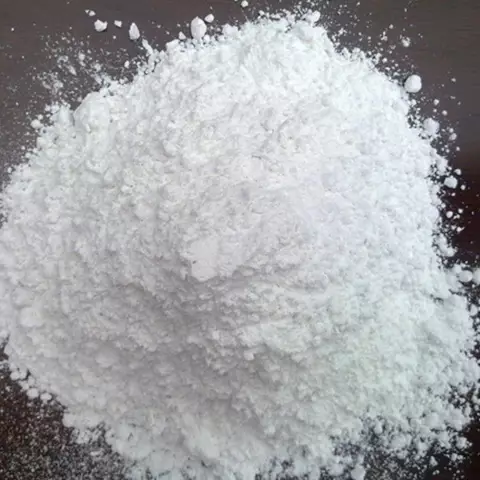- Author Rachel Wainwright wainwright@abchealthonline.com.
- Public 2023-12-15 07:39.
- Last modified 2025-11-02 20:14.
Milk
Milk is usually a person's first food from birth and remains the main food for several months. With breast milk, the baby receives absolutely all the vitamins, minerals and nutrients that he needs for proper development. Milk is a unique product that a person who has left infancy continues to consume.

Among the huge variety of types of this drink, cow's milk is the most popular. However, cases when preference is given to goat, sheep, deer and other types of drink are also not uncommon.
Chemical composition, nutritional value and calorie content of milk
Milk is a product with a mineral composition, vitamin content and the ratio of proteins, fats and carbohydrates in which it directly depends on what the animal ate, what were the conditions of its maintenance and on some other external factors. So, depending on the feed of the cow, the fat content of the drink also changes, and with it the calorie content of milk and its taste. In general, it is generally accepted that 100 g of cow's milk contains:
- 88 g of water;
- 3.2 g of proteins;
- 2.35 g fat. Of these, saturated - 1.9 g; monounsaturated - 0.8 g; polyunsaturated - 0.2 g;
- 5.2 g carbohydrates, including disaccharides and lactose;
- 28 mcg retinol or vitamin A;
- 0.04 g of thiamine or vitamin B1;
- 0.18 mg riboflavin or vitamin B2;
- 0.44 mcg cobalamin or vitamin B12;
- 2 IU vitamin D;
- 113 mg calcium;
- 10 mg magnesium;
- 143 mg potassium.
A small amount of cow's milk also contains sodium, phosphorus, sulfur, chlorine, and trace elements - copper, iodine, iron, selenium, chromium, manganese, cobalt, molybdenum, tin, aluminum, strontium.
The calorie content of milk is also a frequently changing indicator, but in general this value is about 60 Kcal per 100 g.
Useful properties of milk
It is regrettable, but the benefits of milk are significantly reduced when it is pasteurized and sterilized. However, this is the fee for a product that is free from bacteria and harmful impurities. Nevertheless, modern manufacturers strive to ensure that the product is not only safe, but also useful on the tables of consumers.
So, lactose, which is contained in milk, has a beneficial effect on the functioning of the liver, heart and kidneys. The protein casein, which contains the amino acid methionine, helps her in this.
Thanks to the vitamin A content in milk, this product is useful for children during the period of active growth, and also helps to maintain visual acuity. The thiamine content in milk has a positive effect on the rate of sugar absorption.
Calcium, which is so useful for the body at any age, is contained in a natural drink in sufficient quantities in a form that is easily absorbed by the body and is perfectly balanced with phosphorus. In childhood, calcium is necessary for the formation of skeletal bones, and in the elderly it helps prevent osteoporosis. Curiously, the calcium content in cow's milk is lower in summer than in winter. Experts say that the absorption of calcium increases when taken simultaneously with foods containing vitamin D.
The benefits of milk in the treatment of colds have been appreciated by more than one generation. Warm, with the addition of honey or raspberry jam, as well as badger fat, milk is able to lift the most hopeless patient who has a cold to his feet. The fact is that the fight against viral infections requires the participation of immunoglobulins - special elements formed from protein foods. Casein - milk protein - is not only an excellent basis for the formation of immunoglobulins, but is also better absorbed by the body than others.
Getting rid of insomnia and headaches are the next beneficial properties of milk. The high content of tryptophan and phenylalanic acids in this drink has a sedative effect on our body. The recipe is simple: a glass of warm, if possible fresh milk with the addition of honey should be drunk an hour before bedtime. For headaches, it is recommended to add a raw egg to a bowl with a freshly boiled drink. This cocktail, taken throughout the week, is able to relieve the most severe headaches.
The benefits of milk for heartburn are known to most women who are expecting a baby. This drink reduces acidity and reduces pain in a variety of gastrointestinal diseases, including gastritis and ulcers. In order to be guaranteed to forget about heartburn for a long time, you should drink milk slowly, in small sips.
The use of milk in cosmetology began thousands of years ago, when the famous beauty and conqueror of hearts Cleopatra pampered herself with luxurious milk baths. Nowadays, the world beauty industry offers women creams, lotions, gels based on milk proteins, which are designed to give youth and beauty.

Harmful properties of milk
Unfortunately, milk and products based on it are not useful for everyone. Milk, when consumed in excess, causes harm quite often.
In most cases, the negative consequences of consuming this food product persecute those people who suffer from a deficiency in the enzyme responsible for the breakdown of lactose. Its absence significantly reduces the absorption of milk sugar, which entails fermentation of the drink in the intestines, and this, in turn, causes diarrhea. This phenomenon cannot be called widespread - it is characteristic of only about 15% of the population of our planet.
In addition, cow's milk is a strong allergen. Rash, itching, bloating, nausea or vomiting while using it are signs of allergies that indicate the need to stop taking this drink. However, other milk-based products - cottage cheese, cheese, kefir, yogurt - are generally better absorbed. Unlike cow's milk, goat's milk rarely causes harm in the form of allergies.
For older people, the harm of milk is no less pronounced than the benefit. On the one hand, the drink compensates for the calcium deficiency, on the other hand, it is one of the reasons for the development of atherosclerosis.
With a tendency to the deposition of calcium salts in vessels, milk is also contraindicated.
YouTube video related to the article:
Found a mistake in the text? Select it and press Ctrl + Enter.






